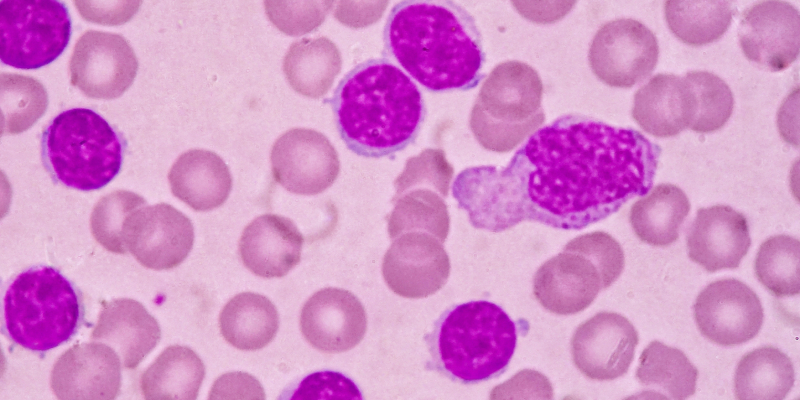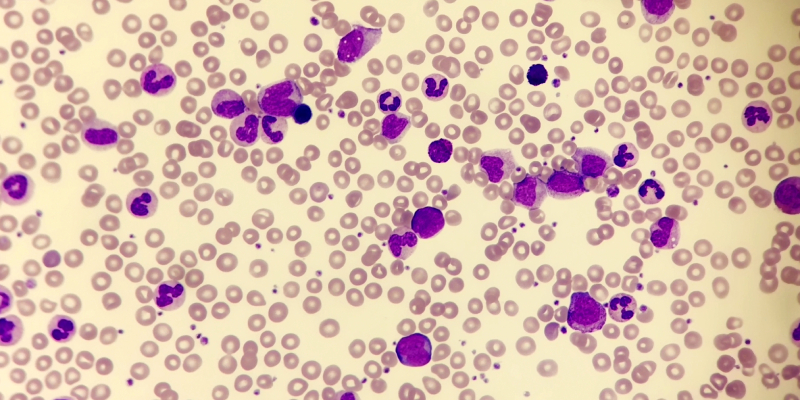
Chronic Myeloid Leukemia
The latest news, research, and perspectives in chronic myeloid leukemia (CML). CML is caused by the BCR-ABL1 fusion gene, which is formed by a translocation between chromosomes 9 and 22 (the Philadelphia chromosome), that produces abnormal proteins leading to the development of leukemic cells.
Advertisement
Advertisement
The Community Oncology Alliance outlined solutions for Congress to address systemic challenges of the U.S. healthcare system.
The award provides early-career researchers at NCCN Member Institutions with $150,000 in funding to support cancer research.
Nicholas Freedman, DO, presented on symptom management and supportive care at the Tri-State Blood Cancer Conference.
CML clinical expert Nikolai Podoltsev, MD, PhD, especially addresses the capabilities of tyrosine kinase inhibitors.
More than 240 meetings were held with members of Congress as part of the ASCO 10th Annual Advocacy Summit.
Melody Smith, MD, MS, shares data on burnout in hematologist oncologists, why it occurs, and how to prevent it.
In a phase 1/2 trial the oral BCR-ABL1 TK inhibitor had effect even in patients with ponatinib-resistant disease.
ASC4FIRST Trial: Asciminib Shows Favorable Safety, Efficacy Versus Investigator-Selected TKIs in CML
Asciminib showed superior safety and efficacy compared with standard-of-care, second-generation, investigator-selected TKIs.Pirtobrutinib cut disease progression/death risk by 46% vs IdealaR/BR in heavily pretreated relapsed/refractory CLL/SLL.
The US cancer mortality rate has declined by 34%, but the incidence of leukemia and other malignancies is increasing.
A real-world study found blinatumomab plus ponatinib as more likely to be effective if used in earlier lines of therapy.
Issues addressed include mandatory versus optional biopsy, informed consent, and safety in both adult and pediatric patients.
The study used a standard 3+3 dose escalation design to evaluate the results of SYNCAR-001 plus STK-009.
Adverse events were common in patients with CML receiving first- or second-generation tyrosine kinase inhibitors.
The approval is based on results of the ASC4FIRST trial, which compared asciminib versus investigator-selected TKIs.
Ponatinib demonstrated long-term efficacy and manageable safety in patients with highly resistant, chronic phase CML.
Achieving deep molecular response has allowed for treatment discontinuation, making TFR a main goal of therapy.
Olverembatinib was well tolerated and showed strong antileukemic activity in patients with chronic phase CML.
Blood Cancers Today delivers the latest news, education, and information relevant to hematologic oncology patients and practices.
Sign up to receive Blood Cancers Today eNewsletters:


















 © 2025 Mashup Media, LLC, a Formedics Property. All Rights Reserved.
© 2025 Mashup Media, LLC, a Formedics Property. All Rights Reserved.